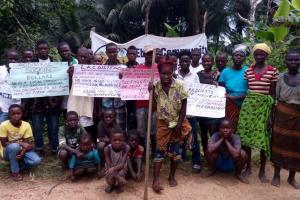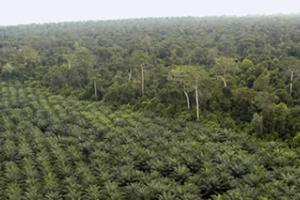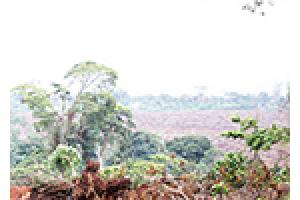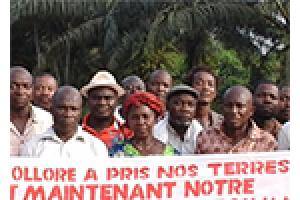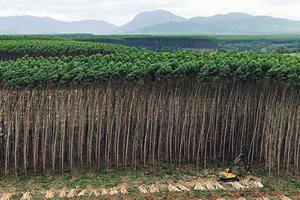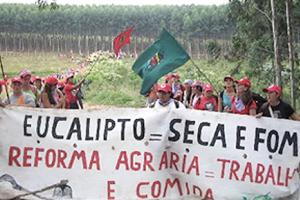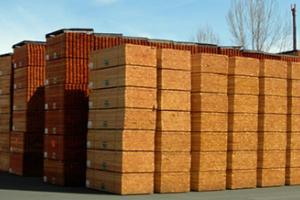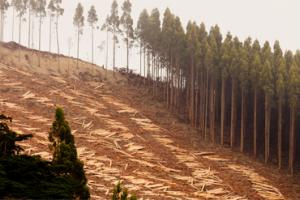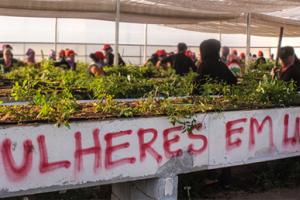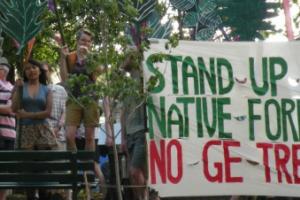Large-Scale Tree Plantations
Industrial tree plantations are large-scale, intensively managed, even-aged monocultures, involving vast areas of fertile land under the control of plantation companies. Management of plantations involves the use of huge amounts of water as well as agrochemicals—which harm humans, and plants and animals in the plantations and surrounding areas.
Other information
3 June 2015
Bulletin articles
3 June 2015
People in Indonesia, particularly in the Banten province, on the island of Java, demand that the government enforce the law and restore river catchment areas (watersheds or river basins) after years of water contamination of the Ciujung river. The contamination is caused by Asia Pulp and Paper, one of the main pulp and paper company active in Indonesia, releasing waste into the river.
Bulletin articles
6 May 2015
Other information
6 May 2015
The radio program Growing Voices, from Radio Mundo Real, discusses the impacts of the highly criticized Wilmar International, one of the largest palm oil corporations in the world. The program looks closer at the case of Kalangala in Uganda, where over one-hundred Ugandan small-scale farmers were evicted, and their lands grabbed by Oil Palm Uganda Limited, a subsidiary of Bidco Uganda Ltd - which in turn is a venture co-owned by Wilmar International.
Other information
6 May 2015
Peasant farmers deprived of their lands launch a series of occupations on Socfin’s plantations in Cameroon, Liberia, Cambodia and Côte d’Ivoire between the end of April 2015 and the annual shareholder meetings of the Socfin group (27 May) and the Bolloré group (4 June). The Bolloré group is the biggest shareholder (39%) of Socfin, which has industrial oil palm and rubber plantations, among others in the countries where the protests are taking place.
Bulletin articles
6 May 2015
Bulletin articles
6 May 2015
For a long time, WRM, along with other organizations and social movements, has denounced the certification of projects that are destructive to forests and their web of life. These projects have also proven to be detrimental to communities living in and depending on forests. The Forest Stewardship Council (FSC) certification not only legitimates industrial logging in tropical forests and vast areas of monoculture plantations, but has also been associated with carbon markets, by certifying trees planted for “carbon capture".
Bulletin articles
10 April 2015
For several years now the Food and Agriculture Organization of the United Nations (FAO) has celebrated the International Day of Forests on March 21. This year’s theme is: “Forests, Climate, Change.” But the changes we see that the FAO promotes only increase the problems of the peoples who depend on forests, such as the trend in Southern countries, like China, Malaysia, Brazil and Chile, to promote commercial plantations of genetically engineered trees.
Bulletin articles
10 April 2015
Other information
10 April 2015
In an unprecedented and alarming move, the United States Department of Agriculture has given GE tree company ArborGen permission to pursue commercial production of a genetically engineered loblolly pine with no regulatory oversight or environmental risk assessment. In the current plan, the potential impacts to the public or to the environment will not be evaluated. This decision sets a terrible and unacceptable precedent.
